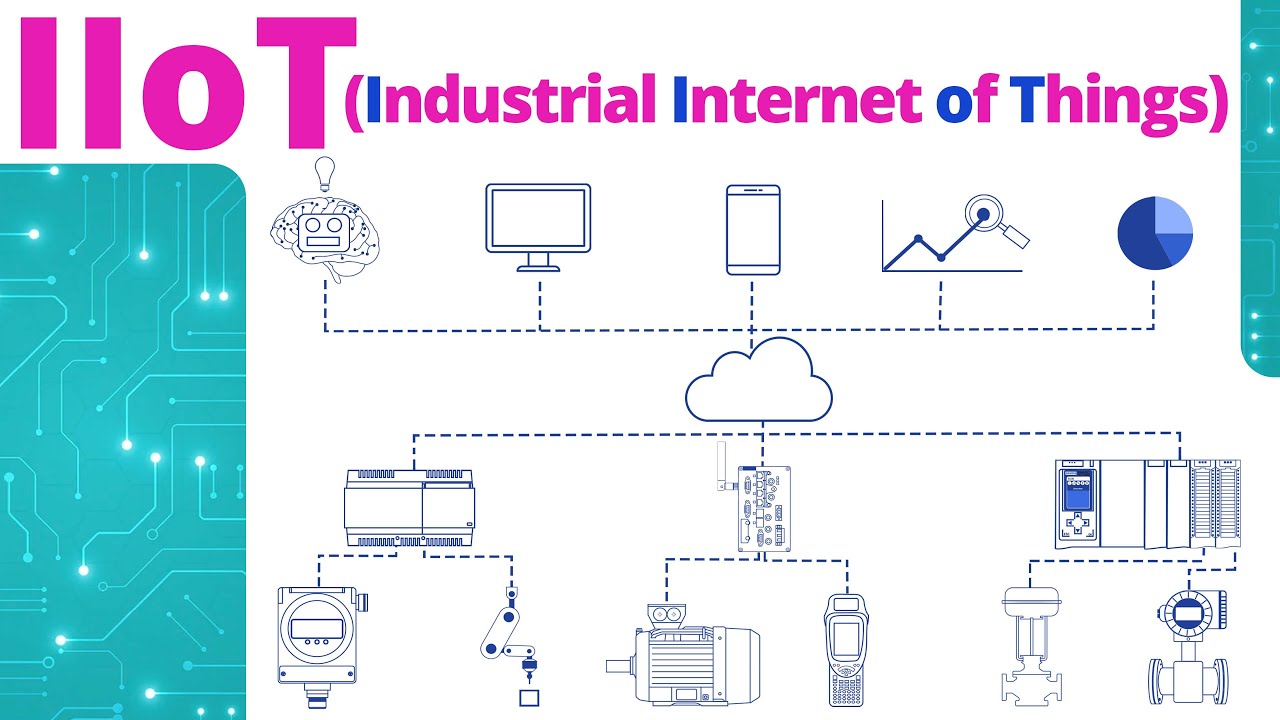The Industrial Internet of Things, or IIoT, is transforming industrial sectors by connecting machines, devices, and sensors to create an integrated network of smart equipment. This subset of IoT is becoming essential in resource management and process automation, with applications ranging from manufacturing to energy distribution. By facilitating the collection and analysis of data, IIoT optimizes production and promotes unprecedented operational efficiency, playing a key role in the landscape of Industry 4.0.
The IIoT, or Industrial Internet of Things, represents a significant advancement in modern industry by integrating IoT technologies into industrial processes. Unlike traditional Internet of Things, which mainly focuses on consumer applications, IIoT targets industrial equipment such as machines, sensors, and devices used in complex industrial environments.
One of the primary goals of IIoT is to connect these machines and devices to collect and analyze data in real-time. This connectivity allows for enhanced optimization of production processes by providing valuable insights into equipment performance, resource utilization, and inventory. With IIoT, businesses can achieve better resource management, maximize operational efficiency, and reduce costs.
IIoT also plays a key role in industrial automation. By integrating intelligent technologies, automated systems can be optimized for more efficient and agile operation. This facilitates operations such as predictive maintenance, where machines can anticipate and report potential failures before they occur, thus minimizing downtime and improving the quality of finished products.
IIoT gateways are essential devices that connect legacy technologies with new digital solutions. They serve as bridges between field devices and cloud services, enabling seamless communication and secure data exchange. This technological infrastructure facilitates remote operations and monitoring of industrial facilities, offering significant operational flexibility.
In the context of Industry 4.0, IIoT is viewed as a catalyst for innovation. It helps companies revolutionize their processes by introducing advanced technologies such as artificial intelligence, machine learning, and big data analytics. Forecasts indicate that the IIoT market is experiencing rapid growth, driving the adoption of emerging technologies across various industrial sectors.
One of the promising applications of IIoT is in the field of on-demand manufacturing. This approach allows companies to respond to market needs in real-time while reducing waste and increasing the flexibility of production lines. By optimizing resource utilization and improving supply chain management, IIoT enables manufacturers to offer greater product customization.
In the context of this digital transformation, securing IIoT infrastructure becomes a critical priority. Robust security practices must be implemented to ensure that sensitive industrial data is protected against cyberattacks while maintaining the confidentiality and integrity of operations.
In conclusion, IIoT, through its connected technologies, reshapes and energizes industrial processes. It represents an essential lever for companies seeking to adopt Industry 4.0 and maximize the value of their production chain. To explore further the development prospects of IIoT in this context and how it is reinventing industrial environments, check out this detailed analysis here.

Table des matières
ToggleFAQ: Understanding IIoT: An Essential Definition
Q: What is IIoT?
A: IIoT stands for Industrial Internet of Things and refers to the application of IoT technologies in the industrial sector to optimize the operation of equipment. It is a subset of IoT.
Q: How does IIoT work?
A: IIoT uses connected machines, devices, and sensors, which collect and analyze data to improve industrial processes. IIoT gateways ensure the connection between different technologies.
Q: What is the purpose of IIoT?
A: The primary goal of IIoT is to optimize resources and increase productivity through enhanced automation and real-time data collection.
Q: Why is IIoT important?
A: IIoT enables effective resource management, remote monitoring, and optimized operations, thus meeting the needs of Industry 4.0 and contributing to rapid market growth.
Q: What are the main benefits of IIoT?
A: Key benefits include improved operational efficiency, reduced maintenance costs through predictive maintenance, and optimized supply chain management.





